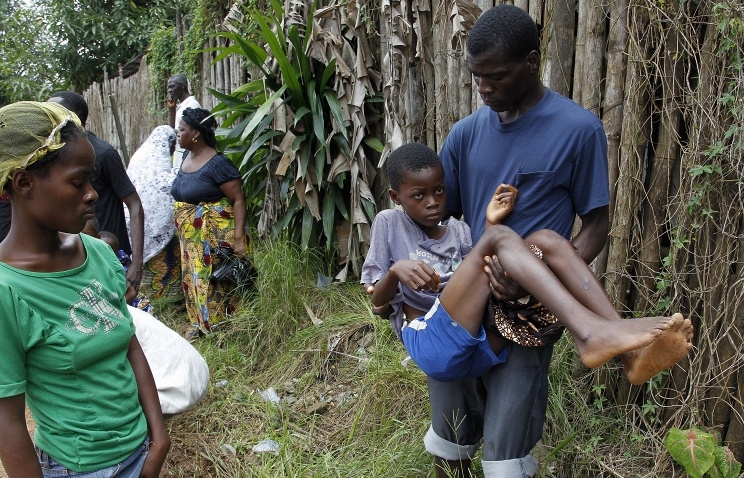To prevent Ebola outbreak, Africans must give up bushmeat: The Independent
 10:38, 20 October 2014
10:38, 20 October 2014YEREVAN, OCTOBER 20, ARMENRPESS. In December 2013 a two-year old child from the village of Gueckedou in south-eastern Guinea became the first victim of this Ebola outbreak, having contracted the disease from a fruit bat his family had hunted as bushmeat.
As reports “Armenpress” citing The Independent, since then Ebola has passed from person-to-person, claiming the lives of thousands and travelling half way around the world.
The severity of this outbreak has led to calls to ban the hunting, selling and eating of bushmeat.
Bushmeat is wild animal meat, and often refers to chimpanzees, gorilla, and other monkeys, as well as fruit bats, that are killed so that they can be eaten.
Previous outbreaks of Ebola are also credited to the bushmeat trade, particularly the capturing and butchering of infected animals.
It is even thought one or more HIV strains originated from bushmeat hunters in central and western Africa.
The World Health Organisation has said: “It is thought that fruit bats of the Pteropodidae family are natural Ebola virus hosts.”
Bats, which can carry a whole range of viruses, are the likely source of Ebola to humans because unlike moneys, the disease doesn’t often kill them.
Often there’s a non-human intermediary, but virologist Professor Jonathan Ball told the BBC that the virus can make the species jump directly from bats to humans by gaining “access to the cells in which it can replicate” through contact with blood.
A study from Cambridge University found that blood is sometimes spilled when bushmeat hunters are bitten and scratched by bats.
But the solution isn’t as simple as banning bushmeat, as the practice will likely just be pushed underground. It's just too big.
According to the Centre of International Forestry Research, five million tonnes of bushmeat are eaten every year in Africa’s Congo Basin.
Africa doesn’t have a livestock infrastructure like the west, and as a meat-eating culture turn to bushmeat as it is available and affordable.
Curbing the bushmeat trade is ideal, but it should be stressed that these species-to-species disease transmission are rare; it’s when infected humans come in contact that the real damage is done.
The Cambridge scientists advocate for educating hunters, having found that most of the 600 surveyed Ghanaians were unaware of the dangers in their bushmeat practices.
Dr Marcus Rowcliffe from the Zoological Society of London, who was involved with the study, said: "Although many programmes suggest economic opportunity as the major motivation behind livelihood choices and success of alternatives, it may not be enough on its own.
“We found people in Ghana to be responsive to education pieces about the disease risk from bushmeat but also the ecological role of bats in pollination and seed dispersal.
"Working with local communities to help them find effective and sustainable solutions in line with their economic needs must be a long-term commitment."




















